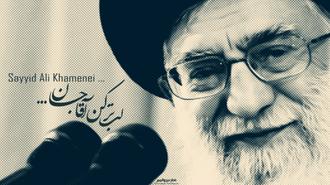(Hazrat Fatimah (s.a), the Link between Prophet Hood and Imamate (Part 2
(Hazrat Fatimah (s.a), the Link between Prophet Hood and Imamate (Part 2
(Her Relationship with the Holy Prophet (PBUH
According to Sunni sources 'Ayshah said ''I had not been seen any one who was more resembling the Messenger of Allah in his speech, conduct and manners as Fatimah; when she used to enter (his house) he would stand up for her, take her hand and kiss it and make her sit in his sitting place; and when he used to enter (her house) she would stand up for him, take his hand and kiss it and make him sit in her sitting place'.
When we study this text, we can conclude two things: first, the unity and complete merging between Fatimah's personality and her father, as the person most closely resembles him. This is reflected even in his walking, as seen in many narrations, such as 'Fatimah came and her walk did not fail the walking of the Messenger of Allah (PBUH)'; second, the depth of the spiritual relationship between the Prophet (PBUH) and Fatimah (s.a), a relationship which the Prophet (PBUH) had with Fatimah (s.a) alone.
It is also narrated: 'The Prophet (PBUH), when he used to travel, the last person he would see was Fatimah.'
Thus her image would stay in his mind, and the kindness and emotion, with which she used to embrace him, would stay with him in his travel and his memory, to comfort him.
'And when he returned from a journey, the first person he would see would be Fatimah.'
Historians have said that the Prophet (PBUH) did not accept that Fatimah (s.a) became separated from him even after her marriage and, therefore, did not accept that she lived in a house far away from him, so she lived in the house next to his so that he could enter into her house directly from his.
Also According to Sunni sources: ''Ayshah was asked:
who was the most beloved person to the Messenger of Allah? She replied: Fatimah. I asked: .and amongst men? She said: her husband
There are many stories from her life which tell how she used to study her father's thoughts to know what he liked and disliked, what opened up his heart and what closed it. An example of this was when he (PBUH) came back from a journey and entered her house, looked around a little, then left. Quickly she knew that something bothered the Messenger of Allah (PBUH). She thought about it and realized that on the door of her house was a curtain and that she had two bracelets in her hands; she took the curtain down and took off the bracelets and sent them with her sons and said: 'Say greetings to my father and say to him: we have not introduced anything after you except this, it is for you to do with them what you like.'
When the Prophet (PBUH) heard this, his expression relaxed. He was moved by this generous, wonderful, spiritual gesture by his daughter, and this thoughtful response, and gave these things to the poor, saying: 'She did this! May her father be sacrificed for her! May her father be sacrificed for her! May her father be sacrificed for her! What have the family of Muhammad (PBUH) to do with life: they have been created for the hereafter!'
This is what every girl with a mission should learn, when her father is a man of missionary affiliations and responsibilities; as too should every woman with someone who has a missionary dimension in his life: she should learn not to get too engrossed with her own affairs, but to open herself up to the responsibilities of her father, husband, brother or son so as to join with him in the dynamic movement of responsibility, and not to add to the burdens to his responsibility. For we see many great men, past and present, become burdened by the people who are around them: while when they think in a missionary manner, those around them think only of themselves.
We also learn from Fatimah (s.a), in her advanced missionary awareness and position, that she was someone who rebelled against her personal needs, however simple, for the sake of her missionary ambitions; she was someone who prioritized in favor of principles over the self. This is what we need to learn, for many of us - men and women alike - fall down when it comes to a choice between the needs of the principle and the needs of the self; we too often choose the self, and may even make a principle of service to the self.
Fatimah al-Zahra (s.a) was unique in all her behavior and deeds, even in her sorrow for her beloved, especially during her separation from the Messenger of Allah (PBUH).
Historians tell us that, when she went to him as he was dying, she embraced him and he whispered something in her ear which made her weep. Then, when he whispered something :that made her laughs, when she was asked for the reason she said
'He whispered in my ear first that he was going to meet his Lord and that his soul was announced to him (his death), so I wept; then he whispered in my ear again that I was going to be the first of his family to go after him, so I laughed!'
Where else would you find a young woman, whatever her love for her father, become happy when he tells her that she is going to be the first to die after him
?What relationship deeper could be than this, and what unity of spirit could be stronger
Source: rafed.net

